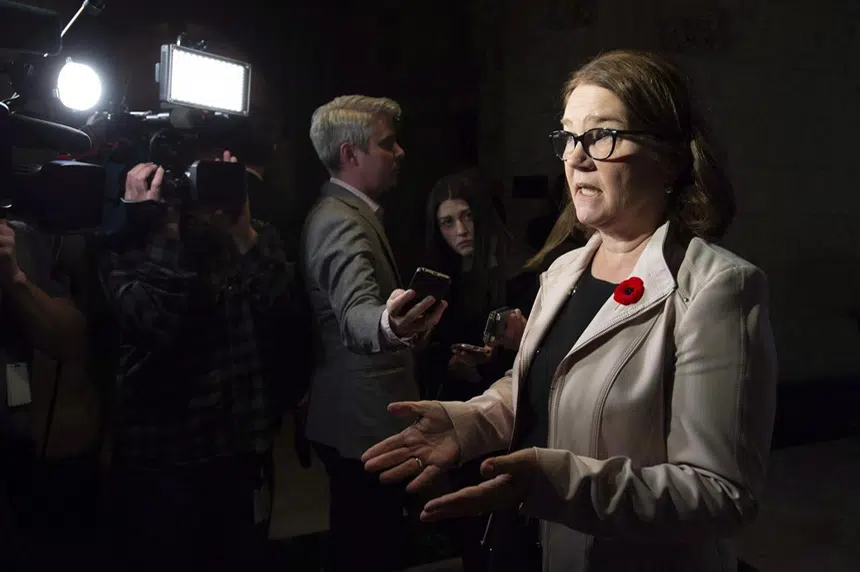Feds to introduce co-developed legislation on Indigenous child services in 2019
November 30, 2018 12:06 pm
OTTAWA — The Liberal government plans to introduce federal legislation on Indigenous child and family services in the new year, written in co-operation with Indigenous groups.
Indigenous Services Minister Jane Philpott says the child welfare system in Canada has taken Indigenous kids from their families for more than a century and that has to end now.
“This is our modern day variation on the legacy of residential schools,” she said Friday.
Most statistics suggest there are more Indigenous kids in foster care today than there were in residential schools when they were at their height.
Philpott said something like 80 per cent of Indigenous kids who are forced into foster care are taken from their parents because of “neglect” but that neglect is really a term for poverty. The legislation will ensure poverty is not a reason to take a child from its parents.
Kids placed in foster care are at great risk for homelessness, incarceration, human trafficking, suicide and homicide, she said.
“These are the most vulnerable children in our country. We need to listen to them. But above the noisy din of our day-to-day lives, the cries of these children are barely audible.”
Philpott made the announcement alongside Assembly of First Nations National Chief Perry Bellegarde, Inuit Tapiriit Kanatami president Natan Obed, and Metis National Council president Clement Chartier.
The legislation is being developed in collaboration with Indigenous leaders and Bellegarde said he hopes, at long last, this will be the first step towards fixing a broken system that makes broken families and broken children.
“You’re going to get a better country,” Bellegarde said. “It’s a step. That’s what you have to hang onto. This is more hope that the number (of kids in care) will go down.”
Indigenous children account for more than 50 per cent of kids in foster care in private homes in Canada, according to government figures, and they face greater risks of health problems and incarceration.
Bellegarde said legislation co-developed with First Nations is an important step toward fixing the system, and Obed called it an “unprecedented initiative” that will ensure the survival, dignity and well-being of families and communities for generations to come.
Chartier said he believes the legislation will be a significant improvement.
Philpott hopes the legislation will be finished in time to be introduced when the House of Commons resumes sitting in late January. She also hopes there will be enough time to get it passed before the election next fall.
Philpott and all three Indigenous leaders hope all parties will support the legislation. Obed said anyone who tries to make helping children a partisan game will pay for it with a drop in public support.
Mia Rabson, The Canadian Press







